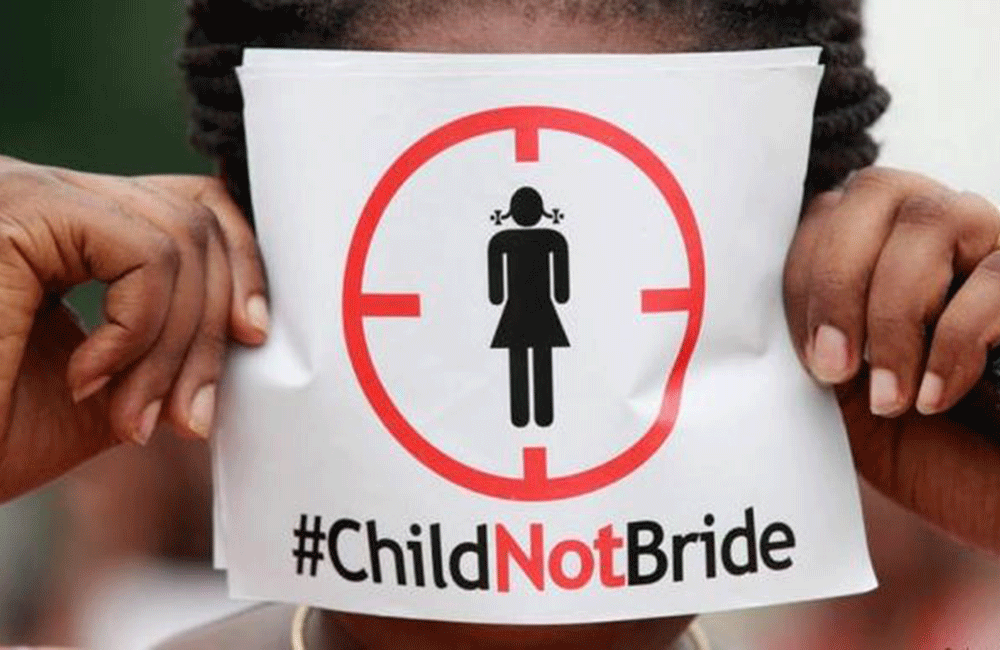Zeenath’s parents believed it was best for girls to marry early in the event of a proposal. The 16-year-old had studied hard and obtained a government job with plans to save for a dowry, a traditional payment to the groom and/or his family. But her hopes were thwarted when her father and mother, themselves trapped in a cycle of poverty, decided not to wait.
Instead, they influenced Zeenath to quickly marry a man of similar age to her own father who was not seeking a dowry. She complied with her parents’ wishes with the aim of pleasing them, but paid a high personal price Zeenath, who uses this name to protect her identity, was assaulted regularly; a victim of spite and distorted Islamic practices, whose rights to healthcare and further educational opportunities were denied. Now she has filed for a divorce against her husband and lives with her own child at her parents’ house.
In another shocking Sri Lankan case last year involving early marriage, pregnant Thameem Fatheema Sharmila, 16, was tied to a chair and then had hot oil poured over her body before she was set on fire by her 22-year-old husband.
Sharmila had been unaware that her husband had already married twice beforehand and she suffered mental and physical abuse on a daily basis. Subsequently, Sharmila died from the burns she received.
Such cases are all too common and women rights’ activists have urged the government to officially make public a report on proposed reforms to Sri Lanka’s Muslim Marriage and Divorce Act (MMDA) amid plans to table legislative amendments in parliament.
However, a copy of the report, compiled by a 17-member committee established in 2009 and chaired by Justice Saleem Marsoof, was leaked and is already available on the internet.
The Marsoof report was officially submitted to Justice Minister Thalatha Athukorale on Jan. 22.
“This committee has been conscious of the urgent need to reform the law to eradicate the menace of child marriages and considered the question of fixing a minimum age of marriage for Muslims,” the report states.
It contains a recommendation for a minimum marriage age of 18 for both males and females to apply to Muslims, however this position was not adopted unanimously by the committee.
The majority committee recommendation is for the introduction of uniform marriage and divorce laws applying to all Sri Lankans, irrespective of their religious beliefs.
At present, the nation’s common law doesn’t allow underage marriages, but the law applying to adherents of the Islamic faith allows for the marriage of girls as young as 12. The United Nations and the European Union have urged the government to end such double standards.
The Sri Lankan government has signed the Convention on the Elimination of all forms of Discrimination, which stipulates that women be afforded the right to freely choose a spouse.
Other Marsoof committee recommendations include references to the issue of greater representation of woman in bodies with decision-making powers in relation to marriage, divorce and maintenance payments.
The Marsoof report notes that Muslims have been visiting Buddhist-majority Sri Lanka since at least the 8th century and that many had settled. Muslims now comprise about 9.7 percent of the population of 21 million people on the island nation. The report also makes the point that there is a “myth of homogeneity” of Muslim laws that constitutes a stumbling block to Sharia reform.
Some Muslim women’s groups also advocate reform and there have been various committees of inquiry on the issue since the 1970s.
Juwairiya Mohideen, chairperson of Women’s Action Network, said the law covering Muslim marriages and the country’s Islamic Sharia ‘Qauzi’ courts continue to oppress women and girls. Mohideen, who is also the director of Muslim Women’s Development Trust, said reform delays constitute a denial of dignity, justice and equality.
Her organization conducted a survey in 2016 of early Muslim marriages carried out between 2005 and 2015 in three districts.
In a sample group of 350 married Muslim girls, 254 girls married when they were aged 16 or 17 and 189 early marriages occurred as a result of financial factors, notably the payment of dowries.
Seven marriages had taken place only one year after girls reached puberty and there were a total of 51 marriages, in the survey group, of girls aged between 12 and 16, Mohideen said.
Father Noel Dias, a lecturer at the Sri Lanka Law College, said that the Muslim Marriage and Divorce Act violates both international law and basic standards of human decency.
He accused the government of dragging its feet on the issue because of lobbying by powerful male Muslim leaders opposed to change.
“This proposal to raise the age of marriage is absolutely essential,” said Father Dias, referring to the Marsoof report.
The Sri Lanka Tawheed Jamaath, a Muslim organization, in 2016 held a protest rally against amending the MMDA to raise the minimum marriage age, but some women’s groups have demonstrated in support of reform.
Niranjani Roland/UCN
